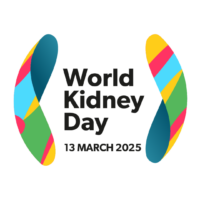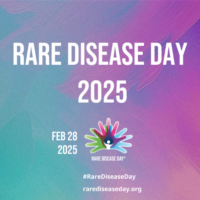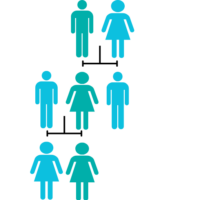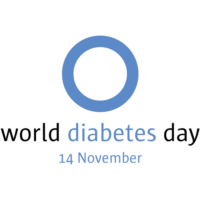
Chronic kidney disease (CKD) is a major global health issue – affecting an estimated 1 in 10 people – yet it is frequently overlooked on health agendas worldwide. In its early stages, CKD is often asymptomatic, and many individuals are unaware that they have CKD until the disease has progressed to later stages, where it becomes harder and more costly to treat – with patients facing the prospect of dialysis or kidney transplant. This makes early CKD detection critical to improving patient outcomes and reducing the growing health and economic burden of CKD worldwide. Recognising this, the World Kidney Day campaign this year is centred around the theme: “Detect early, protect kidney health.”

Rare Disease Day presents a time to reflect on the progress made in understanding and addressing the unique challenges that rare diseases bring – and the hurdles that remain. Over the past year, several significant developments have shaped the rare disease landscape, from new regulatory policies and technological advancements to major advocacy efforts.

Fabry disease is a rare genetic X-linked disease caused by pathogenic genetic variants in the GLA gene. As with other rare genetic conditions, of which there are thought to be over 7000, accurately determining the prevalence of Fabry disease is challenging. Using HealthLumen’s genetic database mining methodology, our recent study suggests that Fabry disease prevalence in the US may considerably exceed previous estimates.

Addressing growing rates of obesity and its increasing strain on healthcare systems has become a key focus for many public health strategies around the globe. As part of the evolving landscape of obesity interventions, GLP-1 receptor agonists (commonly referred to as GLP-1 agonists) have emerged as a promising pharmacological solution. But how effective are GLP-1 agonists as part of a broader public health obesity strategy?

When the Covid-19 pandemic hit in early 2020, drinking habits shifted significantly for many. But what happens when those pandemic-era drinking habits stick around? Recent research from HealthLumen explores the long-term consequences of changes in alcohol consumption during the pandemic, and the findings are stark: if those patterns continue until the end of 2035, England could face nearly 10,000 additional premature deaths, over 147,000 excess cases of disease, and £1.2 billion extra in healthcare costs.

Earlier diagnosis can make all the difference for individuals with genetic diseases. Delayed diagnosis hinders timely disease management and treatment access, meaning that progression to late-stage disease can occur more rapidly, likely leading to a significant increase in the health and economic burden of these conditions for patients, their families, and healthcare systems. Screening programs aim to identify individuals with genetic conditions earlier, with cascade screening in particular providing one way to help transform outcomes for patients.

As part of AstraZeneca’s Accelerate Change Together (ACT) on CKD programme to drive chronic kidney disease (CKD) change across the healthcare ecosystem, the Inside CKD project stream projected the clinical and economic burden of CKD from 2022 to 2027 across 31 countries and regions. The results have recently been compiled into a comprehensive portal on the Inside CKD website.

HealthLumen has today announced the launch of AlleleAtlas, the genetic variant prevalence projection tool. The tool has been developed to bring a valuable resource to the rare disease community, including those engaged in rare disease research and therapeutics in the pharmaceutical, biotech and research spaces, and for patient advocacy organisations aiming to raise awareness.

November 14th marks World Diabetes Day, a powerful opportunity to raise awareness of diabetes as a major global health issue. This year’s theme, “Breaking Barriers, Bridging Gaps”, calls for action to reduce diabetes risk factors and ensure equitable access to quality treatment worldwide [1]. The global diabetes crisis: A growing challenge Diabetes currently impacts over […]

Study highlights which health policies are most likely to be effective in decreasing the prevalence of obesity, with fiscal policies expected to be particularly cost beneficial. This research has informed Nesta’s digital Blueprint tool – which provides data on the health, economic, and feasibility impacts of various obesity interventions – aligning with Nesta’s mission of halving obesity rates in the UK by 2030.
When you need a future-facing decision engine for big, real world population health questions, we are the people to turn to.
Solutions